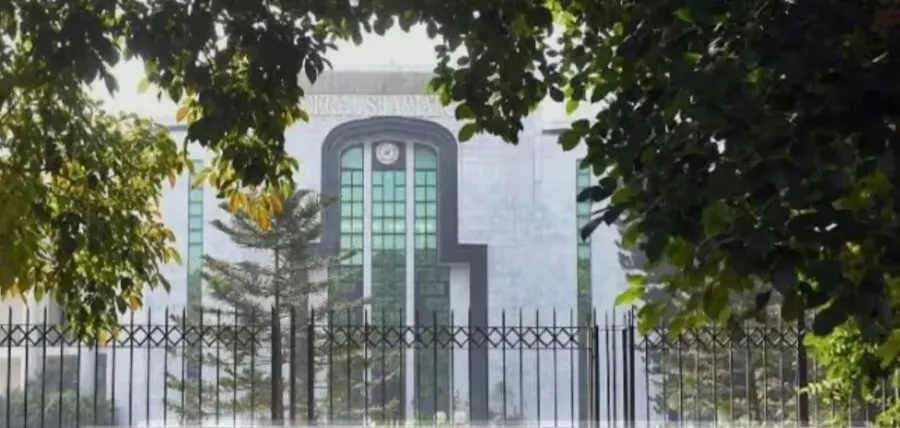As the 27th Constitutional Amendment is likely to be passed soon, the federal government has started the process of restructuring the superior judiciary by shortlisting seven judges for appointment to the proposed Federal Constitutional Court (FCC) — a new judicial body intended to handle constitutional interpretation and intergovernmental disputes.
Names of judges under consideration
According to official sources, consultations are going on regarding the composition of the FCC, with Justice Aminuddin Khan, who currently heads the Supreme Court’s Constitutional Bench, being considered for appointment as the chief justice of the new court.
The other names under consideration include Justice Syed Hasan Azhar Rizvi, Justice Musarrat Hilali, Justice Aamer Farooq, and Justice Ali Baqar Najafi from the Supreme Court; Justice K.K. Agha from the Sindh High Court; and Justice Rozi Khan Barrech, the sitting Chief Justice of the Balochistan High Court.
Sources added that the initial strength of the FCC will be determined through a presidential order, while any future increase in the number of judges would require an act of Parliament.
Officials from the Law Ministry confirmed that under the proposed amendment, judges of the FCC will be appointed by the President on the advice of the Prime Minister.
The proposal to establish the FCC has been revived through the 27th Constitutional Amendment Bill with the aim of streamlining the Supreme Court’s jurisdiction and enhancing efficiency in constitutional adjudication.
The government believes that the creation of a specialised court will help reduce the Supreme Court’s workload, expedite constitutional rulings, and strengthen judicial independence and credibility.
The concept of a separate constitutional court was first introduced in the 2006 Charter of Democracy (CoD) signed between the PPP and PML-N, which proposed setting up a specialised bench to deal exclusively with constitutional issues, allowing the Supreme Court to focus on appellate matters.
The proposal also appeared in the 26th Amendment draft but was later dropped due to opposition from the JUI-F and other parties.
Under the current proposal, the FCC will have exclusive jurisdiction over constitutional interpretation, federal-provincial disputes, and other matters arising from the Constitution.
It will also have the authority to examine the legality of presidential orders and constitutional amendments and respond to references sent by the President or Parliament.
Judges’ profiles:
- Justice Aminuddin Khan, likely to be appointed as Chief Justice of the FCC, was born in Multan in 1960. A second-generation lawyer, he obtained his LL.B. from University Law College, Multan, in 1984 and began practice under his father, Khan Sadiq Muhammad Ahsan. He became an advocate of the Lahore High Court in 1987 and of the Supreme Court in 2001. Elevated to the LHC in 2011 and to the SC in 2019, he has authored several landmark civil and constitutional judgments.
- Justice Musarrat Hilali, the first woman Chief Justice of the Peshawar High Court, was elevated to the Supreme Court in 2023. She previously served as Additional Advocate General of Khyber Pakhtunkhwa and as Federal Ombudsperson for Protection against Harassment of Women.
- Justice Aamer Farooq, former Chief Justice of the Islamabad High Court, was elevated to the Supreme Court in February 2025. Educated in London and called to the Bar at Lincoln’s Inn, he is known for his expertise in constitutional and commercial law.
- Justice Ali Baqar Najafi of the Lahore High Court has extensive experience in civil, criminal, and constitutional matters. He has adjudicated over 37,000 cases and led several major inquiries, including the 2014 Model Town investigation.
- Justice Rozi Khan Barrech, Chief Justice of the Balochistan High Court, joined the judiciary in 1998, was elevated to the High Court in 2019, and became its Chief Justice in July 2025.
- Justice K.K. Agha of the Sindh High Court has an extensive international background, having served as a prosecutor at the UN Tribunal for the former Yugoslavia and as Senior Counsel at the Special Court for Sierra Leone.
